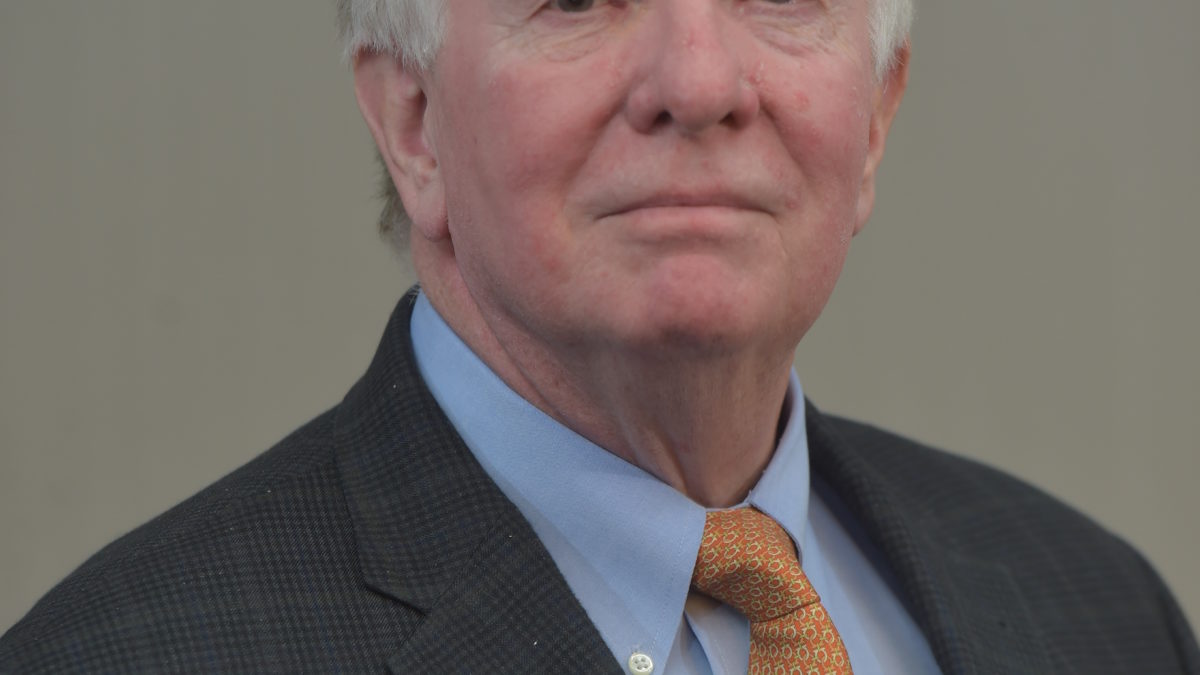CEO Leadership Series: Robert Bitterman, President & CEO, Cutanea Life Sciences

PIVOTAL DECISION BRINGS NEW HORIZONS AND CHALLENGES
After a long career in the pharmaceutical industry, Robert Bitterman decided to launch his own dermatology company, Cutanea Life Sciences Inc., in 2005. Cutanea, a Wayne, Pa.-based development-stage company, which has recently evolved into product commercialization as well, specializes in products which treat diseases and disorders of the skin and related tissue, including acne, psoriasis, rosacea, atopic dermatitis and verruca (warts) caused by human papillomavirus (HPV).
But for Cutanea to reach its full potential, Mr. Bitterman had to make a pivotal decision in 2012. He executed the sale of the seven-year-old company to Maruho Co. Ltd., one of Japan’s leading dermatology companies which has been in business since 1915.
In an interview with Ashton Tweed, Mr. Bitterman explains how cultural differences and a changing dermatology industry landscape are shaping the organization, and why employees and job candidates need to understand the power of saying “thank you.”
After spending much of your career at large pharmaceutical companies, what was it like to launch Cutanea in 2005?
When you have an initial vision of setting up a company, you can picture what you think it’s going to be like, but actually getting into the trenches to make it happen is a very different situation and it was quite a challenge. Somewhere between 2010 and 2011, I was asking myself “What did I get into here?” Raising money in the market at that time was brutal. In fact, I was just trying to preserve cash.
I believe if you have perseverance, focus and keep your cool, things can work out. But it’s not easy and, for anyone who is actually thinking of going that route, I would recommend they talk to someone who has tried it. There will be times of uncertainty, frustration and disappointment in the process. That’s just the way it is. But in the end, I have no regrets.
Maruho acquired Cutanea in 2012. What cultural differences have you navigated in working with a Japanese company that’s more than 100 years old?
Philosophically and culturally, there are many differences in how each party assesses financial value and defines longevity. There were a number of challenges along the way, both for our friends in Japan to understand some of the subtleties of the U.S. market and for us to understand their approach to conducting business. Maruho is also privately held and many of the shares are closely held by the family. Additionally, Maruho had minimal business operations outside Japan. So, all those factors make for an inward-looking company.
The Japanese philosophically take a longer-term view of the world, particularly when it comes to business. If one is establishing a company in the U.S. backed by venture capital or private equity, the investors are typically looking for an inflection point as early as three to five years as a basis for an exit strategy.
I can share with you an example of contrasting time perspectives. I was at Maruho’s 100th anniversary party in Osaka at their annual meeting in 2015, when the gentleman who would likely become the heir apparent to the Maruho’s presidency in Japan asked me, “Bitterman-san, how do we prepare for the next 100 years?” It’s very different to think about building organizational continuity for the long term versus planning a three- to five-year time frame to reach a sound inflection point for exit.
So, we’re looking at building an organization that has multiple layers of succession planning within it. Succession planning flows down to my direct reports as well as the personnel who report to my direct reports. We are concerned about the people who, within a 5-10-year timeframe, can move vertically 2 levels in the organization, taking on those responsibilities of their bosses’ bosses. How do we identify them? How do we retain them? What are appropriate incentives? What professional development programs do we implement to make that happen? That’s a challenge that many people who get tapped to run small venture-backed or private equity companies never have to think about. Our business situation necessitates building a company with a very different kind of culture where mentoring and professional development are critical.
How important is hiring in developing an employee succession plan?
In a pharmaceutical company like Cutanea, the two most critical factors are the human resources and intellectual property. And if you have to rank the two, you’ve got to start with people first because if you don’t have the right people, you’re not going to be able to develop and protect your intellectual property.
In the employee selection process, we reject quite a few interview candidates for various positions. We’ve identified 10 traits as critically important that we use as a guide in hiring, and we try to assess candidates on these criteria over the course of an extended three-part interview process—Judgment, Adaptability, Communication, Team Player, Empathy, Transparency, Passion, Commitment to the Company, Executive Presence/Representation of the Company, and Graciousness.
“Graciousness” isn’t a trait that’s singled out very often. Why is that so important to Cutanea?
There is no gesture that’s more appreciated, whether it’s from an employee, a boss, a vendor, or a customer, than a genuine thank you for whatever act or service is given. I think it’s a common courtesy and, unfortunately, a trait that we’ve lost in this country over the years.
A handwritten “thank you” note for someone who has done something well acknowledges that we view a transaction as more than just an exchange of cash. Being gracious facilitates working together as a team.
What’s happening in the dermatology industry right now and what does that mean for Cutanea’s future?
The medical dermatology space is changing. Large pharma has recently been divesting its dermatology assets. Except for biologics, the market size for medical dermatology is no longer significant enough to drive the bottom line of larger companies.
Therefore, investment in new dermatological drug development will have to come from intermediate sized companies like Cutanea which have the bandwidth and capital. We are fortunate to have the backing of Maruho as a parent company to do this.
Participation in the market has also become more challenging for smaller size companies. Access to distribution channels and managed care formularies on reasonable terms is more difficult today than in the past. Access to physicians and other health care professional customers is also more limited as cost pressures require a more restricted allocation of their time. Access to the FDA for timely and transparent input for development programs is also more difficult; and additional study requirements add time and cost to the development of new drugs.
So, as costs increase, timelines expand and margins are squeezed, one has to step back and really assess how one wants to participate in the space.
Today we have to manage our company very differently than the way we managed 10 years ago. In prior times, if you had a product with reasonable value to the patient, and it was new and it was different, you could get it launched. The doctors would be receptive to hearing from you, they would write prescriptions for your drug and you’d be off and running with revenue generation. Today, you’ve got to be far more selective in the process and really think through your strategy from start to finish. You can’t just say, “If you build it, they will come” like in the movie “Field of Dreams.” That’s no longer the case.
If you’re going to get into drug development and eventual commercialization today, you have to understand what is a true, unmet medical need in the space.
One must be in the right place with a unique drug that will meet that unmet need and you better be no later than third into the marketplace to satisfy that need. Otherwise, you’re not going to get a return. You also have to be very selective about how you intend to reach your target customer. It’s a world where cost becomes a major factor. If you can’t provide value with a fair price, customers will bypass you.
Sounds like it’s pretty tough out there right now for dermatology companies.
Well, if it were easy, everybody would be doing it, right? It’s not easy, but it goes with the territory.
Ashton Tweed would like to thank Robert Bitterman for this interview. If your company needs help from members of the Ashton Tweed Life Sciences Executive Talent Bank, we can supply that assistance either on an interim or a permanent basis. Additionally, if you are among the many life sciences professionals affected by the changes in the industry, Ashton Tweed can help you find the right placement opportunity — from product discovery through commercialization at leading life sciences companies — including interim executive positions and full-time placements. In either case, please email Ashton Tweed or call us at 610-725-0290. Ashton Tweed is pleased to continue to present insightful articles of interest to the industry.
 Robert Bitterman
Robert Bitterman
Robert Bitterman is the President, CEO and Board Director of Cutanea Life Sciences where he has served since 2005. Previously, he was President and Chief Executive Officer of Isolagen Inc. after serving as President and General Manager of Dermik Laboratories, the global dermatology strategic business unit of Aventis S.A., from 1994 into 2004. He has held various positions of increasing responsibility in financial and commercial capacities within Aventis S.A. Mr. Bitterman earned an A.B. degree in Economics from The College of the Holy Cross and an MBA from Boston University. He also holds a Doctor of Humane Letters from the New York College of Podiatric Medicine. He is a director on the board of Rxi Pharmaceutical Corp. and a member of the Philadelphia Business Leaders Network. Mr. Bitterman and his wife live in Villanova, Pa. He spends much of his free time with their three children, three grandchildren, and his German Shepherd.





